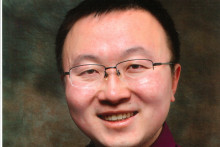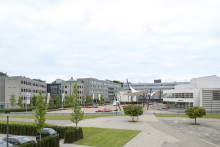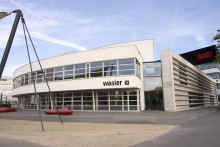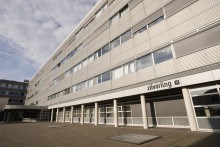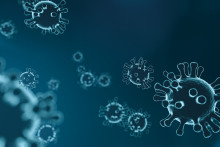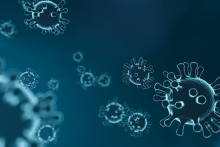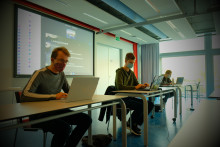Peng Jia
Peng Jia is currently an Assistant Professor at the ITC Faculty of the University of Twente. His field of expertise is spatial lifecourse epidemiology.
‘I originally come from China as a spatial data scientist. I have been trained as one of the earliest generation of spatial epidemiologists in the Emerging Pathogens Institute at the University of Florida, where I have learnt much knowledge on the emerging and re-emerging infectious diseases. If it comes to COVID-19, I have not realized the severity of this “issue” until January 22, 2020, when I got several calls from my previous colleagues within just one day, talking about a rapid response research funding mechanism from the National Natural Science Foundation of China to tackle COVID-19 epidemic. According to my professional sensitivity, I felt this time was not usual, so immediately decided to stop other ongoing research activities and took a leadership to focus on COVID-19 research.’
You are an expert on epidemiology now working at the UT. Have you shared your knowledge and recommendations about the coronavirus pandemic with the UT itself?
Jia: ‘Yes, I was approached by the Marketing & Communications Department last week to share some insights related to the coronavirus, because I have been leading a Chinese consortium to study the COVID-19 for almost two months. Although we are still getting to know this new “enemy” every day, we already have quite some experiences on it from China. I have been keeping a close eye on its progression in the Netherlands with silence, until on Wednesday morning I was just told about the UT Open Days on the coming two days. I immediately sent an email to the UT, recommending to take an immediate action to tighten our line of defense. After four hours, the World Health Organization suddenly declared the coronavirus outbreak as a pandemic, which was within my judgement but came even earlier than I expected. I’m not sure if my morning email and this following pandemic news have reached the central crisis team, but we were notified on Wednesday evening that Open Days would remain. I could only cross my fingers and pray that Enschede would be OK in the next two weeks after the Open Days. I know very clearly that things can develop very quickly and the situation can change rapidly.’
In that email, did you also recommend to cancel the Open Days?
‘Yes, that was my advice. I said I would definitely cancel the Open Days if I were the local public health director. I’m glad that the Open Days were cancelled in the end, because the press conference by the Prime Minister and RIVM validated my advice yesterday afternoon suddenly, and timely. Otherwise I think Enschede would have been on the news and it would not have been for good reasons.’
What are your recommendations for the UT as of now?
‘Work from home. Don’t meet other people if you can, especially if you don’t know the person and their travel and contact history. People can carry the virus even without presenting any symptoms and that is the real danger. Enschede is in a good location, we are sort of in the middle of nowhere, which is great in a case of an epidemic. However, the convenient domestic train system and people travelling within the country may still make Enschede unsafe. So I strongly recommend to limit travel, even within the Netherlands. It is also highly recommended to keep at least one meter distance from others while you talk and to wear a mask when you have to get closer. This is protecting yourself and, more importantly, protecting others including your families and friends, especially those vulnerable populations. My main advice is: work from home and be aware of whom you will meet. Everyone at the UT should be allowed to stay away from others at this special moment.’
Do you think people are taking the situation seriously enough?
‘At this moment, citizens need to take it very seriously. There hasn’t been a pandemic in about ten years, this is a major issue. The Dutch have had the opportunity to see what happened in China. This isn’t completely new for them. If we underestimate the situation now, it is our fault, not the fault of the virus.’


